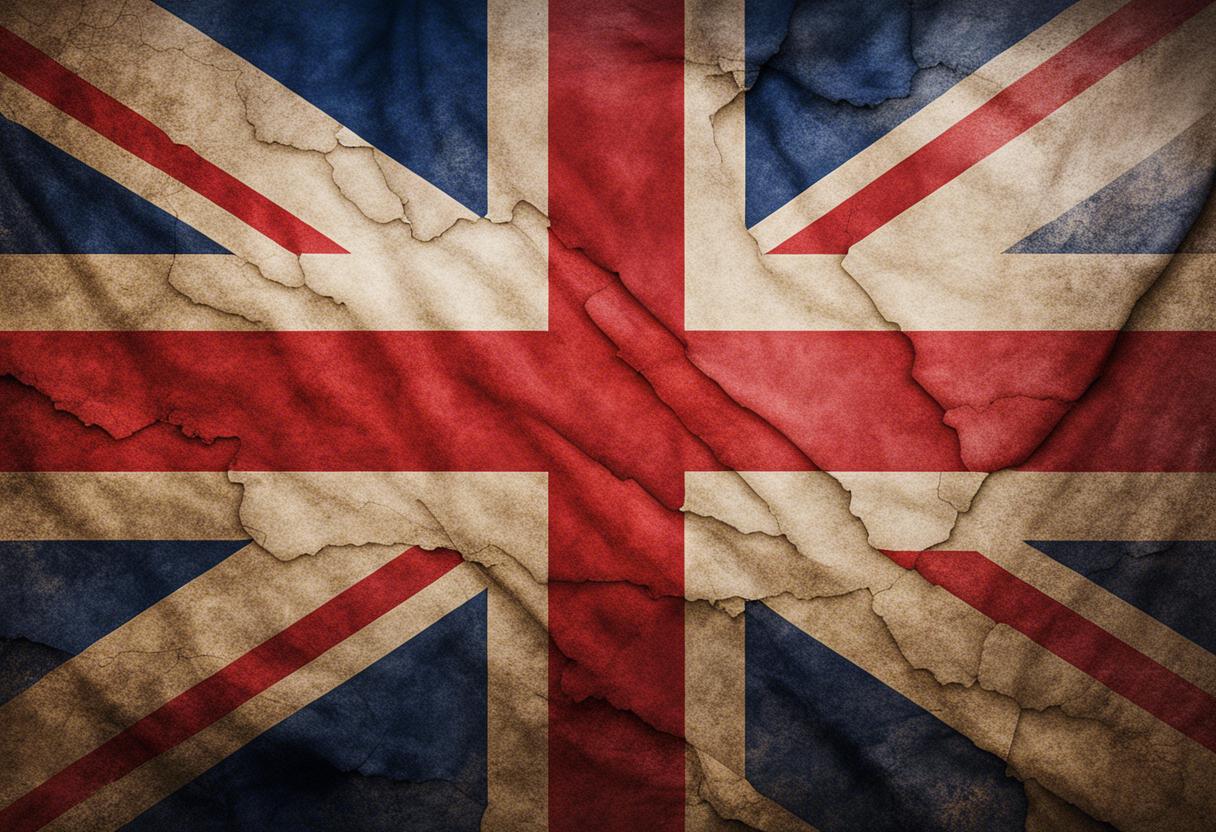The resurgence of English nationalism is linked with Nigel Farage’s re-entrance into the political battlefield, this time as leader of the Reform Party in the UK general elections. However, a careful examination of his ideologies reveals that he leans more towards populism, possessing great expertise in stirring and capitalising on economic, political, and cultural grievances, instead of national identity.
Jim Gallagher, a key consultant to Gordon Brown, attributes London’s shortcomings to Brexit while advocating for changes in the UK’s constitutional arrangements that could potentially protect the union from crumbling under a Labour government.
Nationalism is a comparative notion, requiring an external entity to incite it as a counteractive force. This approach was directed towards Brussels during Brexit rather than engaging other British nationalities such as the Scots, Welsh, Northern Irish, or even Londoners. It seemed more logical for the Conservatives and UKIP back in 2016 to reclaim sovereignty from Brussels rather than London. This sentiment continues to reverberate within the Tory party during current elections. But will this approach be then used against a Labour government? What would be the implications for the UK if this were to proceed over two projected Labour terms?
Research into the concepts of Englishness and Britishness shows that the majority of English voters consider themselves more Anglo-British than exclusively English. English interests are perceived to encompass and serve the interests of the British in other parts of the UK. The ‘English only’ faction is more inclined towards Brexit. Britishness, in England, is largely adopted by non-whites and is most prominent in the multicultural London. In Scotland, Northern Ireland, or Wales, being British carries a completely different connotation, leans more towards Englishness in political views including on Brexit and is in opposition to nationalism. The intertwining of these two identities makes it challenging to label English nationalism as a singular political entity as it currently lacks a proper organisational structure and its primary demand towards the British state is to distance itself from Brussels.
The current predicament of the British Conservatives, as they face potentially devastating electoral defeats and prospective splits or a hostile takeover by the Reform party, mirrors the Liberal party’s restructure and the rising Labour party in the 1920s. This could potentially result in opposition that leans more towards explicit English nationalism. The Labour leadership’s lack of alignment in terms of electoral reform of the first-past-the-post system with its members who are in favour of a system that reflects a broader spectrum of parties could lead to dealing with a significantly large and increasingly disobedient backbench majority.
A group of specialist researchers recently gathered to explore potential scenarios that could have a detrimental impact on British politics and its political unity. Among the topics discussed, it was proposed that steering the scenario away from becoming a destructive force will prove challenging for the Labour Party. Gallagher, for instance, speculates that Labour’s capacity to effect necessary changes and prevent an electoral resurgence from the SNP in Scotland will be challenged within two to three years following predicted losses in this election.
In addition, Ailsa Henderson refers to research suggesting that a substantial portion of Scottish electorate – about 50% – continues to favour independence, even though it isn’t regarded as immediately essential. According to surveys conducted by John Denham for the British Academy, there exists a consistent, albeit nebulous, demand for more democratically-driven governance structures in England likened to those offered to Scotland, Wales, and Northern Ireland through devolved powers.
As a collaborator with Conservative David Lidington, Denham offers a solution to elevate England to the democratic aspiration held by its counterparts. His solution involves restructuring England’s local and regional governments to reflect the recently introduced mayoral roles in Manchester, Birmingham, and other metropolitan areas. It also includes implementing a more democratically minded layer of local governance, which is presently absent not just in England, Scotland, Wales, and Northern Ireland – a circumstance similar to Ireland – but throughout Europe as well. However, local and regional economic disparities in England and a lack of funding for local governance are cited as major roadblocks to Labour’s prospective reforms.
In terms of foreign policies, the UK’s four territories show significant commonality according to survey results. It is highlighted that Brexit proponents in England tend to gravitate towards being more Atlanticist and display greater support for the white Commonwealth compared to Scottish voters. Furthermore, these surveys illustrate that there is minimal public backing for international military interventions of the great power-style compared to the support shown by political and policy elites. This is tipped to create substantial tension should a Labour government follow US policies as instituted by administrations under Trump or Biden, mirroring the scenario of Blair’s endorsement of the Iraq War in 2003.
Gallagher’s concern is that a potential Labour government may fail to instigate sufficient constitutional reform to ward off the re-emerging calls for Scottish independence, nor would they give it necessary priority. Additionally, the Labour government would potentially lack financial means to boost health services and other welfare-related efforts for the UK without a resurgence of economic growth. These discussions serve as critical indicators ahead of Labour’s preparations for building strategies for the UK.

